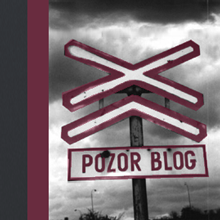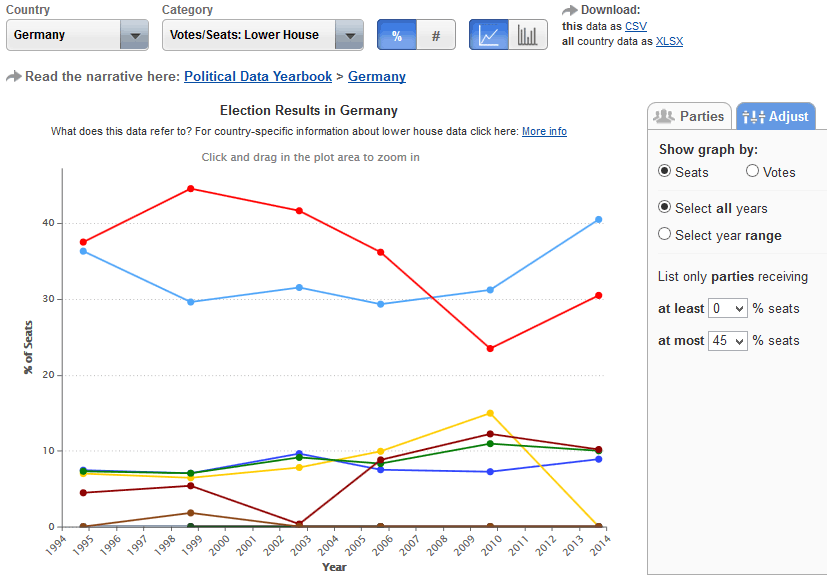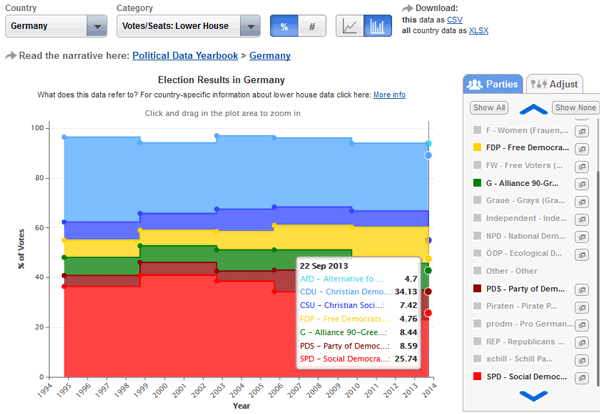 It’s seems to be election season in Europe–Norway last week and Germany this week, with Austria, Luxembourg and the Czech Republic coming up in the next two months (the latter two of which are somewhat premature). No time (or expertise) to offer in-depth analysis of the German elections here, but I wanted to post some screenshots and a link to the Political Data Yearbook interactive: http://www.politicaldatayearbook.com/Chart.aspx/14/Germany
It’s seems to be election season in Europe–Norway last week and Germany this week, with Austria, Luxembourg and the Czech Republic coming up in the next two months (the latter two of which are somewhat premature). No time (or expertise) to offer in-depth analysis of the German elections here, but I wanted to post some screenshots and a link to the Political Data Yearbook interactive: http://www.politicaldatayearbook.com/Chart.aspx/14/Germany
SDP did not t do that badly, at least by some metrics, and although this is being hailed as a “commanding election victory” and a “triumph” (which for CDU-CSU’s raw numbers, it certainly is), it looks a bit less impressive when seen in the context of the collapse of the FDP. Party death and birth, as always, are the interesting questions for me. FDP seems to be the kind of party that can survive a single very bad election, especially if people quickly tire of what is being done in its absence from parliament, as they likely will. But some support may also bleed off to another destination. By my rough calculations, there was about a 5% net increase in voting for parties outside the mainstream, most of it to Alternative for Germany (among existing small parties there was no clear increase). They appear to be betting now on poor economic results and consequences from bailouts to set themselves up and reap the dissatisfaction (not my analysis–that comes straight from National Public Radio (not the finest source on European domestic politics, but good enough, http://www.npr.org/templates/story/story.php?storyId=224101219). So an inconclusive death and a not-quite birth. The same whirlpools that tear Eastern European party patterns asunder with every election are not as powerful here and they face much stronger opposition. But the currents still seem to be present…


